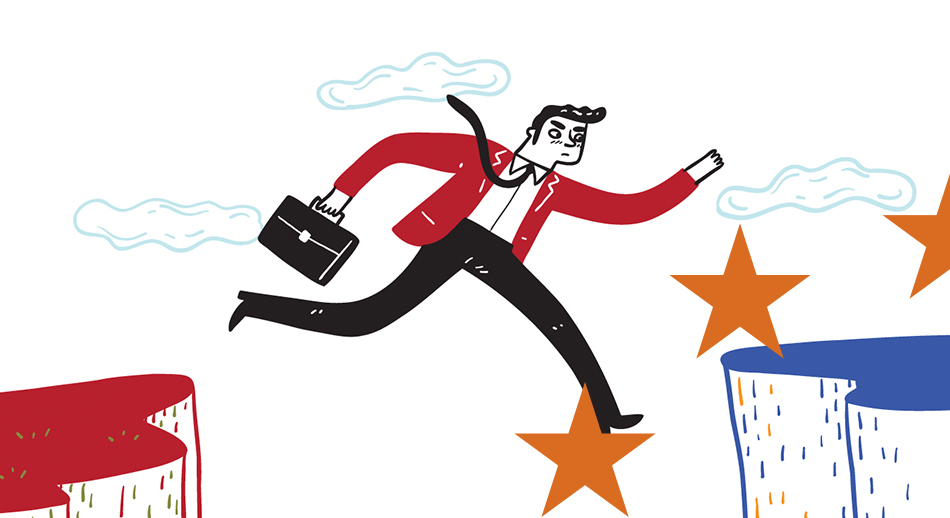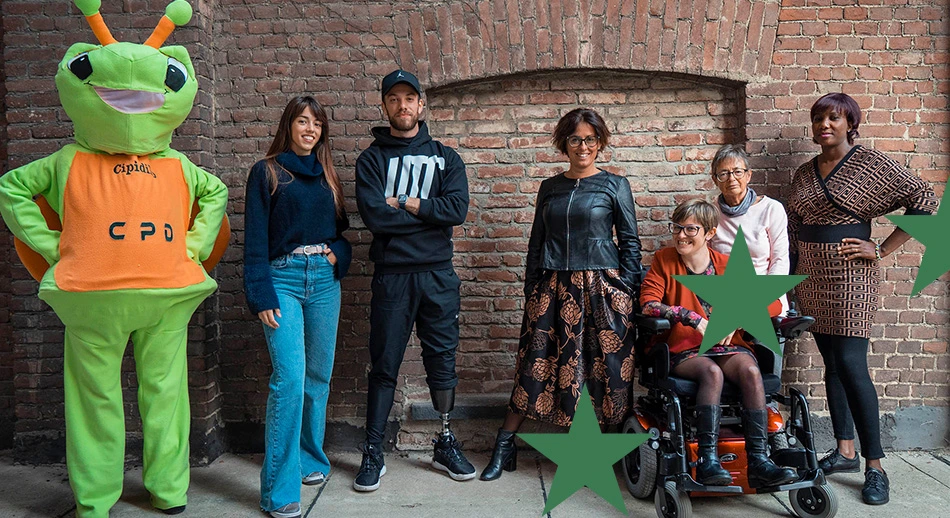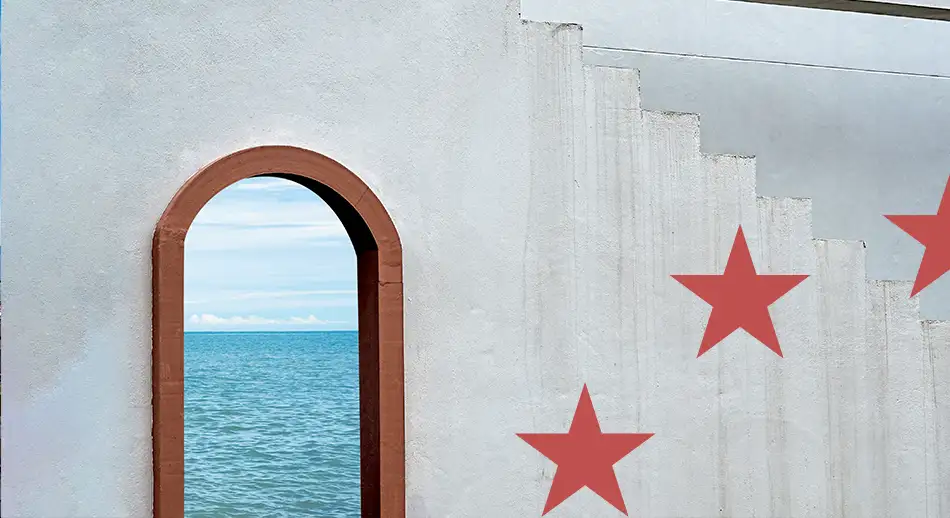Food and the agricultural sector in Europe, told in a 7-season podcast sponsored by the European Commission.
What is Food for Europe
Today we present a resource for you to learn more about the challenges and opportunities, innovations and perspectives related to the agriculture and “food” sector in Europe. It is“Food for Europe,” a podcast from the European Commission that chronicles the experiences of those working in the agri-food sector and delves into a crucial topic in the European policy debate and the structure of EU funds. Launched in 2021, it now has 7 seasons and a total of 58 episodes, the latest of which was released in September.
Before continuing with the Food for Europe story, let us recall our many thematic insights on the topic of food, agriculture, agri-food and rural development. As of 2023, we also count among our partners Filiera Futura, an association dedicated to innovation in the agri-food sector: a collaboration that gives us insights to offer you periodic insights in this area. The Guide’s calls portal offers monthly the most interesting European funding opportunities in the agricultural sector, including regional calls funded under the European Union’s Common Agricultural Policy (CAP).
Each episode of Food for Europe chronicles the changes facing agriculture in Europe through interweaving stories from different local organisations across the Union. Food for Europe can be listened to in English, French, and German on the dedicated page on the European Commission website and on the main platforms dedicated to podcasts-Apple podcasts, Spotify, Soundcloud, and Youtube.
In terms of content, Food for Europe is a well-balanced menu designed for all tastes. The main “courses” include insights on policies, both at the EU and global level, the relationship between agriculture, climate and biodiversity, technological innovation in agriculture, and the challenges of generational change in agriculture; with various “samples” of best practices from different European countries. Let’s explore these contents in more detail, season by season.
Seasons of Food for Europe
The first season was launched in 2021, and introduces the EU’s central theme of organic farming. Episodes focus on promoting the organic label, building consumer confidence, and initiatives under the EU’s Organic Action Plan, which sets the ambitious goal of expanding organic farming to 25 percent of local organisations by 2030.
The second season, also released in 2021, delves into issues related to food and agriculture at the policy level, Europe’s ability to deal with future crises, and the EU’s challenges with respect to its position in world agricultural trade, with an episode taking us directly to Geneva to the World Trade Organization (WTO) ministers’ conference. The opportunities and challenges of “ Farm to Fork “, the EU’s strategy for a more sustainable food system.
The third season, released in 2022, addresses further issues related to food security, central especially with the beginning of the conflict in Ukraine. The role of Geographical Indications in the EU food system, the struggle for soil protection and the promotion of organic farming through the “
The Common Agricultural Policy (CAP) is one of the most relevant issues for the agricultural sector, but also one of the least known by non-“insiders.” Therefore, the fourth season (of 2023) tells us about the implementation of the CAP, introducing the EU’s“Rural Pact” (which we have also discussed here) and analysis of current challenges, such as the fertilizer crisis and solutions for more sustainable pest control.
The fifth season, also published in 2023, explores challenges and opportunities related to sustainability and innovation. New technologies and their impact on European agriculture, such as agri-voltaics, precision agriculture, and vertical farming, are presented, as well as sustainability challenges related to rural depopulation, the role of women, and the changing relationship between agriculture and the environment.
A more “strategic” perspective on European agriculture is offered in the sixth season (2024), where the “Strategic Dialogue on the future of the EU agriculture,” launched in January 2024 to develop a new vision for EU agriculture, is presented. Recurring key issues such as the role of women entrepreneurs in rural areas and generational renewal are also discussed.
Finally, the seventh season, currently underwayfocuses on current issues and future perspectives, devoting an episode to the European Commission’s recently released new Vision for Agriculture and Food, exploring topics such as access to agricultural careers for young people and mental health in agriculture. The topics of innovation, digitization and data sharing for a more efficient agriculture are also addressed.
We have selected for you some episodes that we feel are significant to give you an idea of the variety and richness of the podcast through the 7 seasons, picking up on some of the key themes:
- The Common Agricultural Policy
- Agriculture, climate and biodiversity
- Innovations in the agricultural sector
- Youth and agriculture
- Good practices of European countries.
The Common Agricultural Policy
The CAP is a topic we often talk about in the Guide and will continue to update you on, especially regarding new developments within the new EU budget, which we started writing about here. It is a crucial topic, but not always easy to disseminate, especially when it comes to the concrete impact of the CAP in local organisations. Food for Europe makes it possible to approach the topic in a more engaging and understandable way, even for the uninitiated, thanks to interviews with young farmers who tell about their experience “on the ground,” in the true sense of the word.
Episode #31 (season five) discusses two pillars, as well as challenges, of the CAP: generational turnover and social cross-compliance. The latter is a measure, introduced in 2021, that requires farmers to meet minimum standards in social and working conditions in order to qualify for CAP subsidies. A measure that member countries have been able to adhere to voluntarily, but which has become mandatory since January 2025 and whose real impact is still unclear. For those who would like to learn more about this topic, we can point out one of the first available studies, conducted by two researchers from the University of Bari.
In episode #31 we also get into the topic through the stories of young farmers, such as that of Johannes and Christina, a young Austrian farming couple who tell us how they were able to get their business off the ground, despite being new to the industry, through the Perspektive Landwirtschaft app, developed to match people putting farmland up for sale with farmers looking for land to farm. Supporting a new generation of farmers, without a long family tradition behind them, is very important not only for generational change, but also because it allows fresh ideas to come into the industry and foster innovation.
Agriculture, climate and biodiversity
As we have anticipated, Food for Europe devotes many episodes to issues related to the environmental sustainability of the agricultural sector and the very close relationship between respect for the environment, productivity and the wholesomeness of products.
This issue is addressed in the podcast from multiple perspectives. In episode #44 (season six), the question is asked whether climate compliance and agriculture can be reconciled, reflecting on the debate between the ambitions of the European Green Deal and the needs of farmers. Wolfgang Burtscher, director general of DG AGRI until May 2025, Clara Bourgin of Friends of the Earth, an organization active in the field of international certification for sustainable agriculture and animal husbandry, and Matteo Pagliarani, a young farmer and vice president of the European Council of Young Farmers, a forum to foster dialogue between new generations of farmers and policymakers at the European level, are interviewed. Matteo tells us about the difficulties of a sector in which the presence of farmers under 35 is under 10 percent, partly because young farmers have difficulty obtaining sufficient income. According to Matteo, the key to a positive dialogue between farmers and the European Commission is to involve farmers in a structured process, where the restrictions required of the individual farmer are placed in a scenario that allows them to understand the medium- and long-term benefits.
Food for Europe also tells stories about specific sectors of agricultural production, such as wine production(episode #56) and sustainability issues related to pesticide use(episode #20). The podcast presents some important opportunities for farmers promoted by the EU, such as the mentioned EU Organic Awards(episode #14), true “Oscars of organic food.”
Innovations in the agricultural sector
Food for Europe documents many stories of innovation in the agricultural sector, talking mainly about the challenges related to innovation. The agricultural sector has always been a place of innovation, but it is especially in the last decade that digital technologies have begun to show their full potential.
In episode #51 (season seven), for example, opportunities related to data sharing are explored. Regarding data, Jurgen Vangeyte of the Flanders Institute for Agriculture, Fisheries & Food Research (ILVO) is interviewed, who identifies the biggest challenge in the ability to work simultaneously at the individual and collective level: it is only possible to develop artificial intelligence tools that support farmers if upstream farmers themselves participate by sharing their data. This opens up numerous challenges regarding sovereignty and control of data by farmers.
Other perspectives, from the perspective of European policies, are shared by the two European Commission experts Evangelia Mourmoura and Malte Beyer-Katzenberger, while a direct experience is shared by farmer Carine Cornu, who thanks to data sharing was able to drastically reduce the time spent on paperwork.
Episode #37 (in the sixth season) is dedicated toagrivoltaics, a practice that allows energy production to be combined with agricultural production in the same local organisations and which, complicit with the rising cost of energy, is becoming increasingly popular in Europe. The episode addresses some of the most widespread concerns related to the impact of photovoltaics on the agricultural sector from several perspectives. That of French farmer Benoît Bougler, a pioneer in agri-photovoltaics; that of solar energy companies, through Cédric Cogniez, a key figure in developing partnerships with farmers at one of the largest French companies in the sector, and through Lina Dubina, an advisor in the area of sustainability policies for Solar Power Europe, a trade association for the photovoltaic industry in Europe; and that of European policies, through an interview with Antanas Karbauskas, policy coordinator for economic sustainability of the CAP at DG AGRI.
Youth and agriculture
We have told several times in this article how generational turnover is one of the most pressing challenges for European agriculture, to which Food for Europe devotes several installments.
Episode #43 (season six) addresses this issue by recounting the measures put in place by DG AGRI to try to reverse an aging trend in the agricultural sector that now sees the average age of farmers in the EU at 57. The episode opens with an interview with Haude Blanc, an expert on generational renewal in rural areas at DG AGRI: Attracting young people to rural areas is a priority, but to do so, opportunities must be ensured not only in employment, but also in living conditions, the presence of essential services, meeting opportunities and social life. DG AGRI’s work during the European Youth Week in Brussels, held in April 2024 to create opportunities for young farmers, rural activists, and young people interested in life outside of cities to meet. The picture is completed by the voices of two young people from rural Ireland and Spain, who share positive aspects and challenges of living in the rural world and who participated in the sessions organized in Brussels.
Best practices of European countries
In all episodes, Food for Europe’s approach is to transport the listener to different places in the European rural world to hear the experiences and perspectives of farmers, activists, policymakers, and researchers. Some episodes recount best practices in agriculture in France, the Czech Republic, Sweden, Spain, Belgium, and Poland, countries also chosen to coincide with the rotating presidencies of the Council of the European Union.
Episode #30 (season five), takes us to Spain, where we find a good practice to counter depopulation in rural areas, which is reaching alarming levels in the country. Spain has realized that young people and women are key players in countering rural depopulation, which is why, in several Spanish regions, there is increased support for women and young people who intend to open businesses in rural areas. The story of Natalia Suárez Álvarez, who after 23 years in Barcelona returned to Asturias to take up the profession of ceramist with her own workshop, is emblematic. Women who make this choice, Natalia recalls in the interview, have a great responsibility to inspire other women on this path.
We conclude here this “taste” of Food for Europe, a valuable and inspiring resource for understanding the dynamics, challenges and opportunities of the European agricultural sector. From the Green Deal to the CAP, from digital innovation to generational change, the podcast offers a comprehensive and accessible look, enriched by the direct voices of key players. We will soon return to issues related to agriculture and rural Europe in future articles. For now, all that remains is to wish you good listening.




